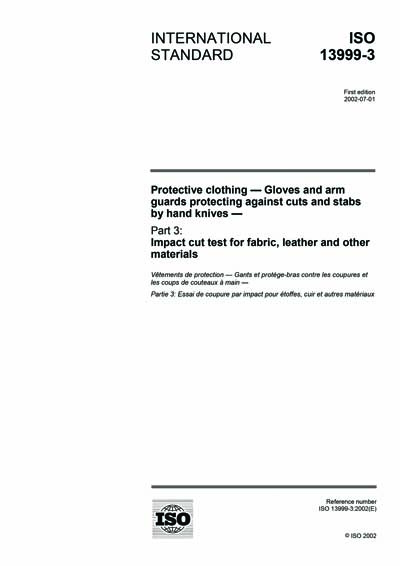Most recent
ISO 13999-3:2002
Protective clothing - Gloves and arm guards protecting against cuts and stabs by hand knives - Part 3: Impact cut test for fabric, leather and other materials
This part of ISO 13999 specifies an impact cut test for use on fabric, leather and other materials used in protective clothing materials, gloves and arm guards. This test assesses the resistance of the test specimen to cutting by a sharp, straight knife-edge after the point of the test knife has perforated the test specimen. The length of the cut produced by the particular impact energy is proportional to the depth of penetration of the knife, which is easily measured.
This test method provides information about the resistance of the product to stabbing cuts, slashing cuts, shearing cuts and impact cuts by acute edged objects that are not necessarily sharp. Abrasion by coarse sharp abraders such as road surfaces, concrete building blocks, or rough metal castings, is the superimposition of numerous small cuts. The results from this test give a good prediction of the resistance of products to these types of harsh abrasion. This test does not provide information about the resistance of the product to penetration by thorns or needles.
Annex A of this part of ISO 13999 gives recommendations for the specification of impact cut tests on materials and products such as gloves and arm guards and gives the list of information which should be specified in the product standard in order to be able to apply this test.
International Organization for Standardization [iso]


